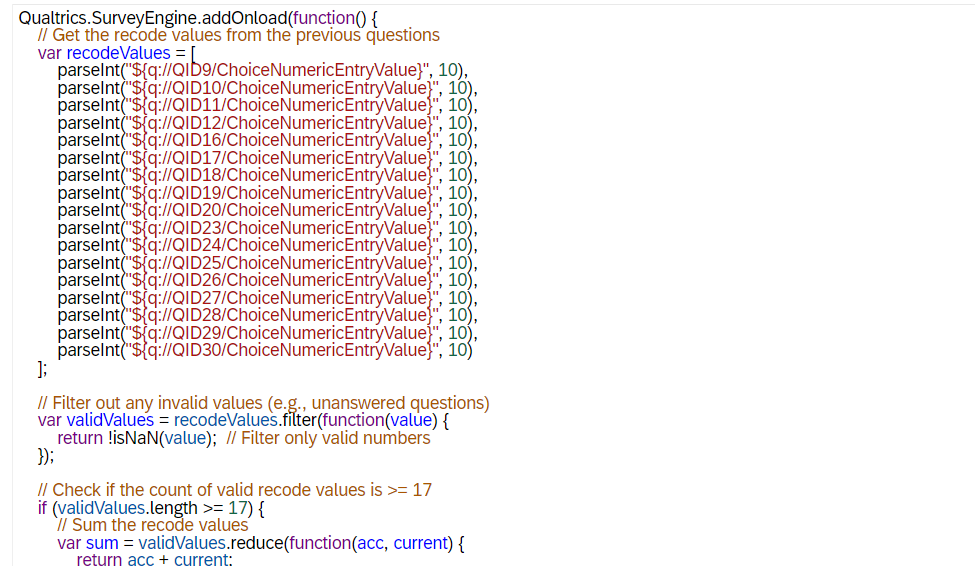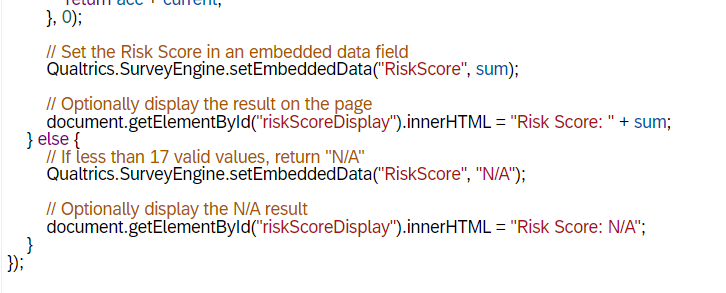Hello, I am trying to create a question to calculate a “Risk Score” based on answers to previous questions.
The previous questions contain recode values that are already in Qualtrics. Here is the intended calculation for Risk Score: If the count of the recode values is >= 17, then take the sum of the recode values. Otherwise, return “N/A” to the user. If anyone could provide any guidance as I am not proficient in Java Script, that would be greatly appreciated!










